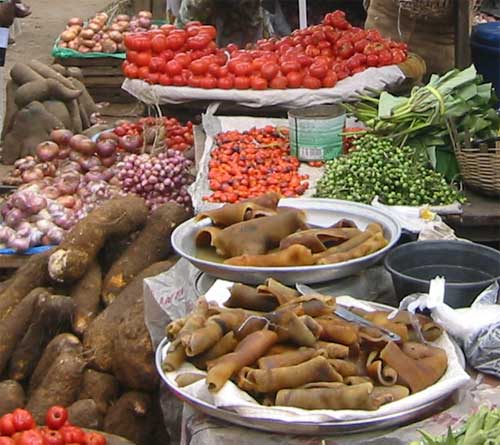A food scientist, Mrs Vera Eze, has advised Nigerians to always ensure consumption of safe foods to avoid preventable deaths.
Eze, who is the Chairperson of the Abuja Chapter of the Nigerian Institute of Food Science and Technology (NIFST),gave the advice on Wednesday in Abuja, NAN reports.
She expressed concern that some of the foods consumed by Nigerians had the tendencies to kill outrightly.
“It is sad to observe that most of the foods we consume in Nigeria can kill outrightly.
“It is, thus, the responsibility of food scientists to ensure that the food we consume are safe.
” We are concerned with, even how our farmers cultivate their crops, to harvesting methods, to preservation and storage until it gets to the consumers,” she said.
She advised government to create silos and collection centres for farmers for effective regulation and distribution of foods in the country.
She said it had become advisable to buy unripe fruits and allow them ripe naturally because most fruits in the markets were ripened with dangerous chemicals.
She, however, advised those who need to ripen their fruits artificially to use ethylene gas, which she said, was safe for consumption.
“Most of the people who sell fruits these days ripen their fruits with carbides, which is harmful to the human body.
ALSO READ: South African mob kills Nigerian man wrongly accused of kidnapping
” I advise people to buy unripe fruits which they can ripen by themselves, using safe methods.
“Ethylene gas is one safe material to ripen fruits, it could be more expensive but it is safe,” she said.
The food scientist said that NIFST was planning a public enlightenment forum to discuss quality of foods consumed across the country.
She said that the aim was to ensure that Nigerians stop consuming poisonous foods capable of shortening their lifespans.
” We intend to bring stakeholders together to discuss to subject of “food quality management; challenges and prospects.”
” It is part of our corporate social responsibility to ensure that all the impediments to safe food in Nigeria are identified and gradually removed.
“Our aim is it ensure that Nigerians no longer die from avoidable poisonous elements in the food they consume,” she said.


 Entertainment5 days ago
Entertainment5 days ago
 Health1 week ago
Health1 week ago
 Health4 days ago
Health4 days ago
 Football1 week ago
Football1 week ago
 Football1 week ago
Football1 week ago
 Education6 days ago
Education6 days ago
 Crime4 days ago
Crime4 days ago
 Crime1 week ago
Crime1 week ago
